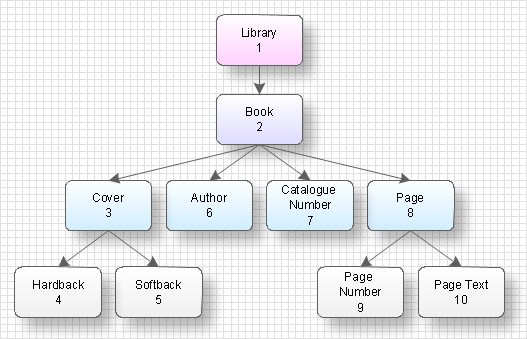"In mathematics, the Euclidean algorithm, or Euclid's algorithm, is a method for computing the greatest common divisor (GCD) of two (usually positive) integers, also known as the greatest common factor (GCF) or highest common factor (HCF). ...
The GCD of two positive integers is the largest integer that divides both of them without leaving a remainder (the GCD of two integers in general is defined in a more subtle way).
In its simplest form, Euclid's algorithm starts with a pair of positive integers, and forms a new pair that consists of the smaller number and the difference between the larger and smaller numbers. The process repeats until the numbers in the pair are equal. That number then is the greatest common divisor of the original pair of integers.
The main principle is that the GCD does not change if the smaller number is subtracted from the larger number. ... Since the larger of the two numbers is reduced, repeating this process gives successively smaller numbers, so this repetition will necessarily stop sooner or later - when the numbers are equal (if the process is attempted once more, one of the numbers will become 0)." [Euclidean algorithm. Wikipedia]
The flowchart example "Euclidean algorithm" was created using the ConceptDraw PRO diagramming and vector drawing software extended with the Mathematics solution from the Science and Education area of ConceptDraw Solution Park.
The GCD of two positive integers is the largest integer that divides both of them without leaving a remainder (the GCD of two integers in general is defined in a more subtle way).
In its simplest form, Euclid's algorithm starts with a pair of positive integers, and forms a new pair that consists of the smaller number and the difference between the larger and smaller numbers. The process repeats until the numbers in the pair are equal. That number then is the greatest common divisor of the original pair of integers.
The main principle is that the GCD does not change if the smaller number is subtracted from the larger number. ... Since the larger of the two numbers is reduced, repeating this process gives successively smaller numbers, so this repetition will necessarily stop sooner or later - when the numbers are equal (if the process is attempted once more, one of the numbers will become 0)." [Euclidean algorithm. Wikipedia]
The flowchart example "Euclidean algorithm" was created using the ConceptDraw PRO diagramming and vector drawing software extended with the Mathematics solution from the Science and Education area of ConceptDraw Solution Park.
Data structure diagram with ConceptDraw PRO
Data structure diagram (DSD) is intended for description of conceptual models of data (concepts and connections between them) in the graphic format for more obviousness. Data structure diagram includes entities description, connections between them and obligatory conditions and requirements which connect them. Create Data structure diagram with ConceptDraw PRO.- Basic Flowchart Symbols and Meaning | Euclidean algorithm ...
- Difference Between Flow Chart And Algorithm
- Difference Between System Flowchart And Program Flowchart
- Difference Between Algorithm And Flowchart With Example
- Difference In Man Type And Material Type Of Flow Chart
- Basic Flowchart Symbols and Meaning | Euclidean algorithm ...
- Difference Between Algorithms And Flow Chart With Examples
- Difference Betwwn Flowchart And Algorithm In C
- Basic Flowchart Symbols and Meaning | Euclidean algorithm ...
- Difference BW Flowchart And Algorithm
- Difference Between Algorithm And Flowchart
- What Is Difference Between A Flow Chart And Cross Functional
- Difference Between Algorithm And Flowchart Wikipedia
- Difference Between System Flowchart To Program Flowchart
- Basic Flowchart Symbols and Meaning | Euclidean algorithm ...
- Process Flowchart | Basic Flowchart Symbols and Meaning | Types ...
- Cross-Functional Flowchart (Swim Lanes) | Swim Lane Diagrams ...
- Types of Flowcharts | Types of Flowchart - Overview | Basic ...
- Difference Between System And Program Flow Chart
- Entity Relationship Diagram Symbols | Process Flowchart | Data ...

